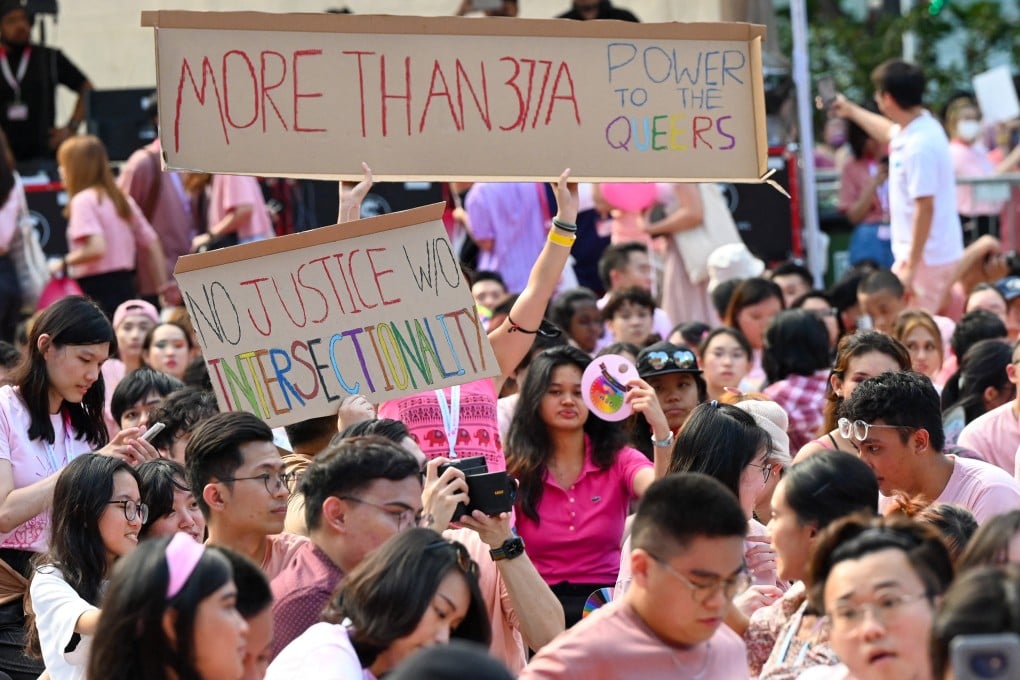Advertisement
Singapore tables bills to repeal Section 377A, preserve status quo on marriage
- Bills to revoke the ban on sex between men and amend the constitution to protect the definition of marriage are expected to be passed into law in the PAP-dominated parliament
- While the government said attitudes towards homosexuality in Singapore have shifted ‘appreciably’, it has maintained that marriage is a union between a man and a woman
Reading Time:3 minutes
Why you can trust SCMP

Dewey Simin Singapore
Singapore’s government on Thursday introduced two bills that when enacted into law will put into effect its plan to repeal a colonial-era legislation criminalising sex between men while protecting the status quo position on marriage in the city state.
The bills proposing the repeal of Section 377A of the penal code and the introduction of a new “Institution of Marriage” article in the constitution, will be debated together on November 28 and put to a vote separately.
The ruling People’s Action Party (PAP), which has for decades governed with a legislative supermajority, has said it will not lift the whip on the votes, making it a near-certainty that the bills will be passed into law.
Advertisement
The main opposition Workers’ Party, which has nine MPs in the 103-seat legislature, has not publicly stated whether it will back the changes.
A government statement said the new Institution of Marriage constitutional article would clarify that parliament has the sole prerogative to make laws to “define, regulate, protect, safeguard, support, foster, and promote” the institution of marriage.
Advertisement
Advertisement
Select Voice
Select Speed
1.00x